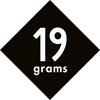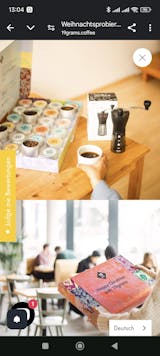Germany is the second largest coffee importer after the USA. Therefore, we have a considerable influence on how the coffee of our choice is grown and under what conditions it is produced.
But when looking at the various seals in the supermarket, one can sometimes get confused. Should we choose organic, fair trade or direct trade - or should we do it all at once to be sure? Is that even possible?
We'll explain what exactly is behind organic, fair trade and direct trade and which philosophy we follow at 19grams.
Organic
The organic seal is a seal of quality and testing. In order to receive this, certain standards and requirements must be met by the farmers, but also by the buyers, which are regularly checked. For example, Bio.certified coffees may only be roasted, ground or otherwise processed on certified machines. The best-known seal of quality is the EU organic seal.
Organic cultivation
Organic coffee is grown in mixed cultures, for example together with bananas, cocoa or sugar cane. The advantage is that this loosens the soil and reduces the risk of erosion. In addition, natural protection against pests is created, so that neither chemical fertilizers nor chemical pesticides are necessary. Another big plus is that most of the plants are taller than the coffee bushes, giving them shade. The bushes need this shade to be able to develop more sugar in the coffee cherries through a longer ripening period on the one hand, and to produce a larger yield on the other.
Gentle harvesting and slow roasting
In the case of organic coffees, great importance is attached to gentle harvesting with minimal use of machinery and maximum manual labor. In addition, the beans are roasted slowly (a longer roasting time at lower temperatures) to allow all the aromas and flavors to develop.
High costs for organic seal
Even if the organic seal provides the consumer with a good guideline, the following aspect must not be forgotten: trustworthy organic seals are not awarded for exemplary behavior, but must be purchased and are very expensive for both the farmers and the roasters. A cooperative pays around 3,000€ in fees just for certification. After that, there are additional fees for annual inspections, for example. This means that especially farmers from poorer regions can hardly afford an organic seal, even if they meet all standards.
Important for you as a coffee drinker: Coffee can also be grown under organic conditions without an organic seal, most of our coffees have organic quality.
Fair Trade
Fair Trade is a trade partnership based on communication, transparency as well as respect. It aims to create justice through controlled trade, especially for small farmers and ranchers in developing countries. Well-known organizations are Fairtrade (FLO), Rainforest Alliance and UTZ with a respective seal.
Even if the principles of the organizations are positive and should help the farmers to increase their quality and productivity through further education, there is the following problem: Many do not know the exact differences between the Fair Trade seals and their exact meaning. We explain why Fair Trade products are not always as fair as we first think and what you should pay attention to.
No legal standards
Each organization can set its standards individually, as there are no fixed legal templates as with organic labels. So the farms have to meet the standards of the label - but not 100%. Often the farms have 1-3 years after certification to do so.
High admission fees
Depending on the Fair Trade label, the cooperative must pay between €2,000 and €5,000 in admission fees. For the farmers, this means that although they receive more money for Fair Trade products, there is a deduction due to the fees, which often makes the bill close to zero.
Direct Trade
No middlemen
Direct trade means that there are no more middlemen in the value chain. Unlike organic or fair trade, there is no seal. Direct Trade is based on a trusting partnership between seller and buyer. Both the farmers and the roaster as well as you as the coffee drinker benefit from this arrangement.
Price advantage
The big advantage of Direct Trade is that by cutting out the middleman, there is no extra lot that wants to be paid. This allows the farmers to be paid a price that is many times higher than the commodity price and allows the farmers to earn a justifiable income.
Our philosophy: Direct Trade
The idea of importing coffee directly is deeply rooted in the philosophy of 19grams (formerly Trescabezas) and has been implemented since our foundation in 2002. Sascha and Robert know our long-term partners personally, for example from Hacienda Sonora, Don Martin or in Costa Rica and other countries. We can therefore guarantee that our coffees are grown under the best possible conditions. Even today, our coffees are named after the farm they come from in order to highlight the work of our partners.
Although both organic and fair trade labels are good approaches, at 19grams we believe that a trusting direct relationship with farmers ensures both environmentally friendly and pollution-free production and controlled trade. We carefully select each of our partner farms and inspect and test their coffees before purchasing. We can offer both the farmers and you a fair price that is not compromised by the deduction for a seal.
We believe that a strong relationship with the farmers is key to our Bloody Good Coffee.




